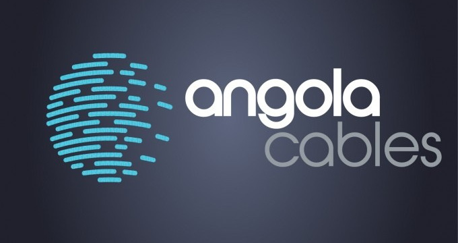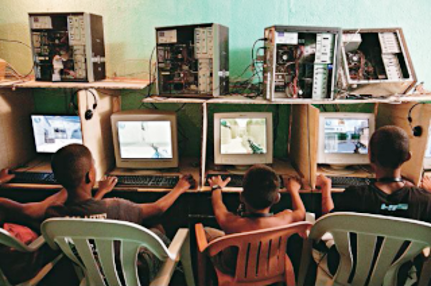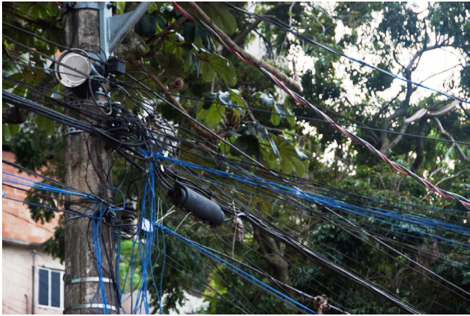SAKAN Partners: BRAZIL
This page begins the discussion of the potential partnerships between the BRICS community and SAKAN, starting with Brazil. All institutional arrangements for highly effective partnerships are already in place, including the vital funding mechanisms. Each of the BRIC countries has much to offer South Africa in terms of the Triple Threats, all have been plagued by this global scourge, and all have effectively eroded the phenomena in various ways. Besides a much larger population than South Africa's, Brazil has many socio-cultural similarities with South Africa, and has been measurably successful in reducing very high levels of inequality through bottom-up development interventions. South Africa can benefit greatly from a close partnership with Brazil.
Please click the "PARTNERS" navigation bar to return to the list of partners, or the "HOME" navigation bar to return to the home page.
 The SAKAN concept is based on the Brazilian LAN House phenomenon, introduced to South Africa by a Brazilian technological delegation accompanying former Brazilian President Lula da Silva during his state visit to South Africa in February 2010. The Brazilian delegation presented their national strategy for the development of the Brazilian Information Society, the “Key building blocks of the Information Society”. Please click the link to view the complete Brazilian presentation. The Brazilian LAN House strategy succeeded in providing Internet connectivity to 47% of Brazil’s poor citizens residing in the nation’s favelas (residential areas of the poor), and to 58% of rural dwellers, in 2009 alone. The Brazilian LAN Houses continue to provide vital access to the information society for Brazil’s economically marginalized population, exceeding 70% within this group in recent years.
The SAKAN concept is based on the Brazilian LAN House phenomenon, introduced to South Africa by a Brazilian technological delegation accompanying former Brazilian President Lula da Silva during his state visit to South Africa in February 2010. The Brazilian delegation presented their national strategy for the development of the Brazilian Information Society, the “Key building blocks of the Information Society”. Please click the link to view the complete Brazilian presentation. The Brazilian LAN House strategy succeeded in providing Internet connectivity to 47% of Brazil’s poor citizens residing in the nation’s favelas (residential areas of the poor), and to 58% of rural dwellers, in 2009 alone. The Brazilian LAN Houses continue to provide vital access to the information society for Brazil’s economically marginalized population, exceeding 70% within this group in recent years. The collaborative partnerships that SAKAN seeks to establish with Brazil will share the knowledge and experiences of the two BRICS community partners to reduce the high levels of inequality, poverty and unemployment that afflicts both countries. While Brazil faces the same economic and socio-political growth challenges that most developing countries face, the country is recognized as one of the most vibrant hubs for entrepreneurship and small business development in the developing world. Media reports as recently as October 2017 show that the number of new companies grew by 5.1% in the third quarter of 2016, led by one-person entrepreneur start-ups which grew 13.2% year on year (see Reuters article here). This vibrancy is driven by an increasing population of entrepreneurs taking advantage of the broadband access available to the nation’s poor communities through favela-based LAN Houses. South Africa can benefit greatly from partnerships with Brazil, established within the growing BRICS community of Brazil, Russia, India, China and South Africa.
 During South Africa’s formulation of the country’s Broadband Policy, “South Africa Connect” in 2013, Angola was planning its 40 Tb/s 6,500 km South Atlantic Cable System (SACS), linking Luanda in Angola to Fortaleza in Brazil, and ready for service in 2018. South Africa missed a golden partnership opportunity that year, but such a partnership remains possible – the sharing of vital experience and knowledge between South Africa and Brazil via the highest capacity lowest latency submarine cable available to link Africa to the Americas. SAKAN will examine this possibility to further the collaboration between Angola, Brazil and South Africa in the use of ICT to defeat the triple scourges of inequality, poverty and unemployment that afflicts all three countries.
During South Africa’s formulation of the country’s Broadband Policy, “South Africa Connect” in 2013, Angola was planning its 40 Tb/s 6,500 km South Atlantic Cable System (SACS), linking Luanda in Angola to Fortaleza in Brazil, and ready for service in 2018. South Africa missed a golden partnership opportunity that year, but such a partnership remains possible – the sharing of vital experience and knowledge between South Africa and Brazil via the highest capacity lowest latency submarine cable available to link Africa to the Americas. SAKAN will examine this possibility to further the collaboration between Angola, Brazil and South Africa in the use of ICT to defeat the triple scourges of inequality, poverty and unemployment that afflicts all three countries. LAN houses are loved by mothers. Many believe they have strong educational value. For example, the Brazilian favela resident Gleide Gomes says she does not mind spending nearly half her monthly income of the 300 reals (R1,300) for her three children to attend the local LAN house. For her, it is an “investment.” As the family lives in an area with high crime levels, she says playing in the LAN House protects her children from street gangs and drugs traffickers. "Going there, they learn better computing," she believes. Gleide is not at all wrong. "Although people first look for the Internet to entertain themselves, over time they increase the chances that they will use the network to do something useful from a professional and economic point of view"
LAN houses are loved by mothers. Many believe they have strong educational value. For example, the Brazilian favela resident Gleide Gomes says she does not mind spending nearly half her monthly income of the 300 reals (R1,300) for her three children to attend the local LAN house. For her, it is an “investment.” As the family lives in an area with high crime levels, she says playing in the LAN House protects her children from street gangs and drugs traffickers. "Going there, they learn better computing," she believes. Gleide is not at all wrong. "Although people first look for the Internet to entertain themselves, over time they increase the chances that they will use the network to do something useful from a professional and economic point of view"  Digital Favelas: What Cities of Tomorrow Can Learn from the Slums of Today: Like electricity, Internet connectivity acquires a makeshift character in the favela — it too has to be acquired and reliably maintained in the face of continued institutional neglect: “Internet providers won’t improve their Internet infrastructures because there aren’t enough customers, but it’s not true…if you look out there every light pole you will see tons of blue cables going to every direction and every house…we need more and better Internet.” Fernando, a LAN house owner, explained: “The people here don’t have time to learn about technology and Internet, so I decided to learn on-line how to do this – it is a source of income and does good for my community”. Please click the image to read the full article
Digital Favelas: What Cities of Tomorrow Can Learn from the Slums of Today: Like electricity, Internet connectivity acquires a makeshift character in the favela — it too has to be acquired and reliably maintained in the face of continued institutional neglect: “Internet providers won’t improve their Internet infrastructures because there aren’t enough customers, but it’s not true…if you look out there every light pole you will see tons of blue cables going to every direction and every house…we need more and better Internet.” Fernando, a LAN house owner, explained: “The people here don’t have time to learn about technology and Internet, so I decided to learn on-line how to do this – it is a source of income and does good for my community”. Please click the image to read the full article



